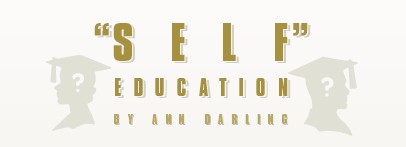|

And Finally
 Each
semester begins with a tangible sense of hope. Every classroom is filled
with anticipation tempered by an appropriate twinge of fear. Students
all over campus are making friends, meeting teachers, expanding their
social horizons, and learning about history and biology and economics
and, yes, communication. After a little over 20 years teaching communication,
I’ve finally embraced what I’ve always known to be true—students
in classrooms everywhere are engaged in an ancient and sacred process
of making life better for themselves and their families. For some students,
that means getting a good job. And, certainly, that isn’t a bad
place to begin. Ultimately, however, being a student means becoming a
different person, expanding, deepening, and unfolding the “self”
that one can bring to every part of one’s life. As educators, we
have the honor and responsibility to be witness to and facilitators of
this process.
Each
semester begins with a tangible sense of hope. Every classroom is filled
with anticipation tempered by an appropriate twinge of fear. Students
all over campus are making friends, meeting teachers, expanding their
social horizons, and learning about history and biology and economics
and, yes, communication. After a little over 20 years teaching communication,
I’ve finally embraced what I’ve always known to be true—students
in classrooms everywhere are engaged in an ancient and sacred process
of making life better for themselves and their families. For some students,
that means getting a good job. And, certainly, that isn’t a bad
place to begin. Ultimately, however, being a student means becoming a
different person, expanding, deepening, and unfolding the “self”
that one can bring to every part of one’s life. As educators, we
have the honor and responsibility to be witness to and facilitators of
this process.
When I was asked to compose this essay I was presented with the question, “What do today’s students need, hope for, fear, and learn in classrooms?” My answer? They need the same thing students have been needing, hoping for, fearing, and learning for centuries. They need to grow.
Students come to a university expecting to have access to current and credible sources of information. But information is only part of what they need. Information alone won’t help make a “self” better. They also need guidance in turning that information into knowledge and even wisdom. Selves are changed not by information but by the process of gaining knowledge and attaining some wisdom along the way. Guidance need not, and should not, always take the form of kind and supportive nurturing. In fact, for learning to take place there must be a fracture of the self. Students need to be pushed and challenged. If you ask them, students will tell you that they want that intensity in their college learning experience. They are hungry for it. That challenge, however, must be born in a context of safety and trust. Learning is derived from an opening of the mind and self in classrooms that are protected by expectations for respect and civility. While students are hungry for the self-efficacy that comes as a result of meeting challenges, they also fear being placed in classrooms where they will face potential rejection and even humiliation. It is incumbent upon us as teachers and administrators to be vigilant of the ways we can make our campus and classrooms the kinds of places where respect makes room for challenge and learning is celebrated.
Sometimes students’ hopes and fears collide. Enrolling in the University requires a significant set of compromises and sacrifices, which are ultimately made in the hope of creating a better life. Some have suggested, however, that today’s college students fear that there will not be a better life to come—that because of the size of the national debt, the denigration of the natural environment, the threat of nuclear war, and now the uncertainty brought on by terrorism, they worry that the best part of their lives has passed. The hopefulness of this generation of college students seems tainted by the fear that hope is not enough.
It is my hope that every day in every classroom across America, and certainly here in Utah, we combat that cynicism with the awareness that education has always made a difference. It has always made life better. Even in the bleakest of times, people still attended college, and, as a result, we have all but eradicated polio and managed to keep global nuclear war at bay.
So, what do students learn in classrooms? I think, fundamentally, they learn how to solve problems collectively. They learn how to feel fear and move on, how to accept a challenge and grow from the experience. They learn how to struggle and succeed, how to adapt and accomplish. They learn how to be part of something bigger than themselves, and how to be compassionate toward those who have not yet seen this connection. Students become aware of their own opinions, values, and insights, and they learn how to express themselves with clarity, conviction, and hope. Classrooms are endlessly complex, curious, and even sacred places where “selves” become accessible and developed. It is my privilege and challenge to be a responsible trustee of my students’ “self” education.
—Ann Darling is associate professor of communication,
chair of the Department of Communication, and a 2002 recipient of a Distinguished
Teaching Award.
